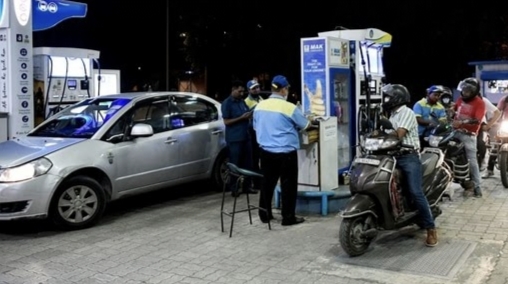New Delhi: The central government and the state have come face to face after the decision to reduce the excise duty on petrol and diesel to provide relief to the people at the peak level of inflation. Some states are in favour of reducing VAT on oil prices while some have opposed it. He said the reduction in VAT would put undue pressure on states’ revenues.
Meanwhile, Maharashtra, Kerala and Rajasthan have announced reduction in VAT. While, in Tamil Nadu, there has been a tussle between the ruling and the main opposition. Anna DMK has given a week’s ultimatum to the state government to cut oil prices.
The Shiv Sena-led Maharashtra government has reduced VAT by Rs 2.08 per litre on petrol and Rs 1.44 per litre on diesel. The state government said the decision would result in an annual loss of Rs 2,500 crore. Tamil Nadu’s DMK government says it is not advisable for the state government to think of reducing taxes
State Finance Minister Palanivel Thiaga Rajan said the central government had announced a tax cut in November 2021 as well, due to which the state is already incurring a loss of over Rs 1000 crore. He said that despite the announcement made by the Centre on Saturday to reduce taxes, oil prices are much higher than in 2014.
There has been a huge increase in taxes on petrol in the last seven years. The central government’s revenue grew manifold during this period, but the states’ revenues did not increase as much in comparison. This is the reason why the central government has increased the surcharge on the cess levied on petrol and diesel while reducing the basic excise duty which has to be further shared with the states. ”Tamil Nadu’s main opposition party Anna DMK has given an ultimatum of ’72 hours’ to the ruling DMK to fulfil its promise of reducing oil prices during the elections.
In November last year, after reducing the excise duty on petrol and diesel by Rs 5 and Rs 10 per litre respectively, 25 states and Union Territories had announced reduction in VAT to protect consumers from retail prices at record levels. States ruled by parties outside the NDA like Maharashtra, Andhra Pradesh and West Bengal, however, refused to do so then.
Meanwhile, the Left Democratic Front (LDF) government in Kerala has announced a reduction in taxes on petrol and diesel by Rs 2.41 and Rs 1.36 per litre respectively. Rajasthan Chief Minister Ashok Gehlot said the state government will reduce VAT by Rs 2.48 per litre on petrol and Rs 1.16 per litre on diesel. Congress leader in Madhya Pradesh Kamal Nath demanded the BJP government in the state to reduce VAT on petroleum products.
In BJP ruled Karnataka chief minister Basavaraj Bommai said his government would consider a cut on fuel tax. Meanwhile, a source in the Goa government said the Pramod Sawant-led government is not in a mood to reduce VAT on petrol and diesel further as it will further dent the economy. The ruling Trinamool Congress in West Bengal said funds will be released to the state by cutting taxes once the “economic blockade” ends.
Oil Minister Hardeep Singh Puri welcomed the decision to reduce excise duty for the second time and said that with this decision, the prices of petrol and diesel in Maharashtra, Rajasthan, West Bengal, Tamil Nadu, Andhra Pradesh, Jharkhand and Kerala will remain 10 to 15 rupees higher as compared to BJP ruled states.
Oil Minister Hardeep Singh Puri welcomed the decision to reduce excise duty for the second time and said that the decision will keep petrol and diesel prices higher by Rs 10 to Rs 15 in Maharashtra, Rajasthan, West Bengal, Tamil Nadu, Andhra Pradesh, Jharkhand and Kerala as compared to BJP-ruled states.






